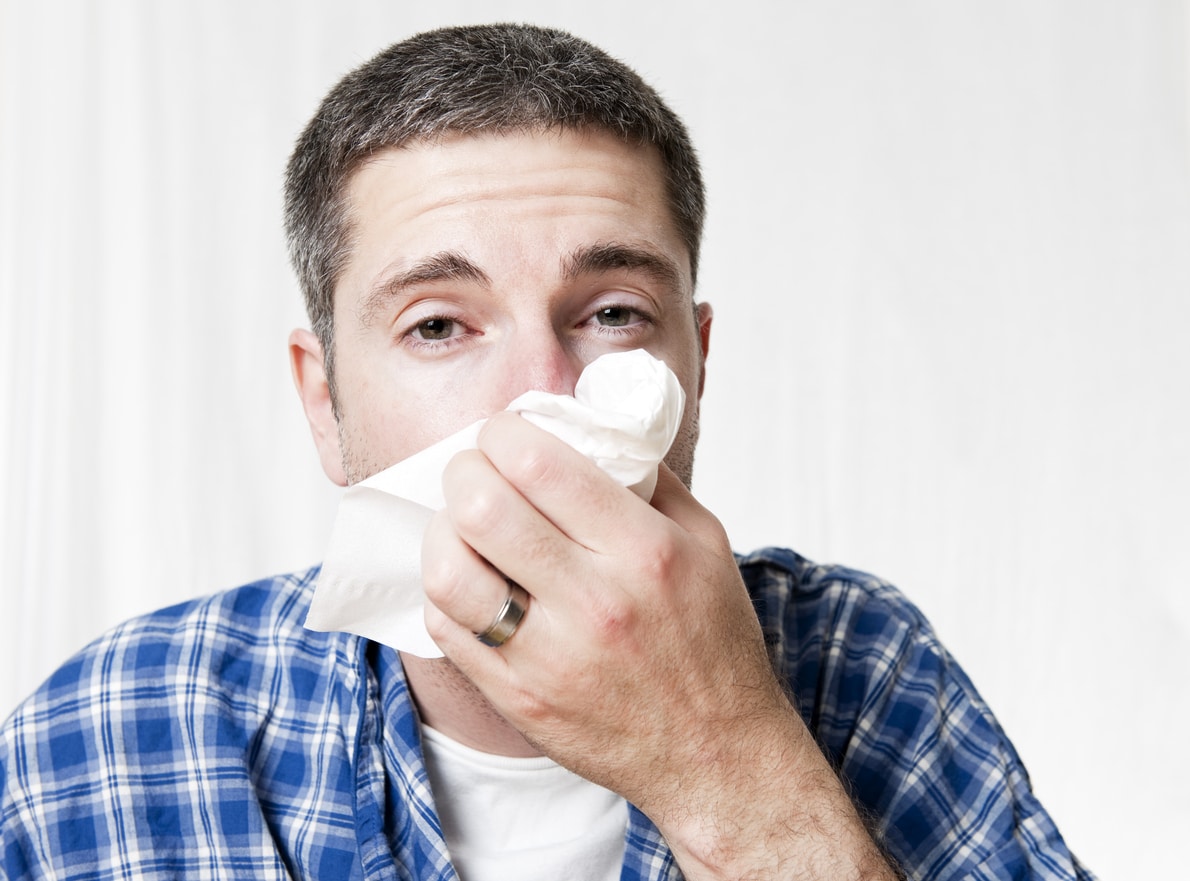While you may think of allergies as a spring and summer problem, many people experience allergies throughout the winter as well. Below, we review the symptoms, causes and treatments for winter allergies.
Symptoms of Winter Allergies
Common symptoms of winter allergies include:
- Itchy, watery eyes
- Dark circles under the eyes
- Congestion
- Runny nose
- Sneezing
- Postnasal drip
- Scratchy throat
- Headaches
- Rash or dry skin
- Wheezing or shortness of breath
Causes of Winter Allergies
Some of the many potential causes of winter allergies include:

- Dust mites. It’s not dust you’re allergic to, but rather the microscopic arachnids that live in and feed on the dust. More specifically, it’s the enzymes in their waste and decaying bodies that cause symptoms. Even the cleanest houses contain dust mites.
- Mold spores. Mold thrives in dark, moist places like bathrooms, kitchens and basements. Mold spores can float in the air and be inhaled, causing symptoms.
- Pet dander. Many people with allergies to pet dander experience worse symptoms in the winter because their pets spend more time indoors. It’s not their fur that causes symptoms; it’s the protein found in the skin, saliva and urine of animals with fur or feathers.
Treating Winter Allergies
Below are some ways you can treat your winter allergies.
Practice Avoidance
The first line of defense against winter allergies is to practice avoidance of known allergens. An allergy test can determine what exactly you’re allergic to. You can practice avoidance by:
- Dusting and vacuuming weekly
- Using hypoallergenic covers on bedding
- Washing bedding weekly in hot water
- Replacing filters in your HVAC system regularly
- Investing in a portable air filter
- Keeping food well-sealed and tossing it as soon as it goes bad
- Checking for leaks under sinks and repairing them promptly
- Grooming and bathing pets often
- Calling an exterminator if you see pests
Taking Medications
If practicing avoidance doesn’t provide relief, you can try allergy medications such as:
- Antihistamines
- Decongestants
- Corticosteroids
- Eye drops
- Pain relievers
Undergoing Immunotherapy
Allergy immunotherapy is a long-term solution for allergies that works by introducing small amounts of allergens so the immune system can build up a tolerance. Talk to a provider at Carolina Pines ENT about immunotherapy today.
